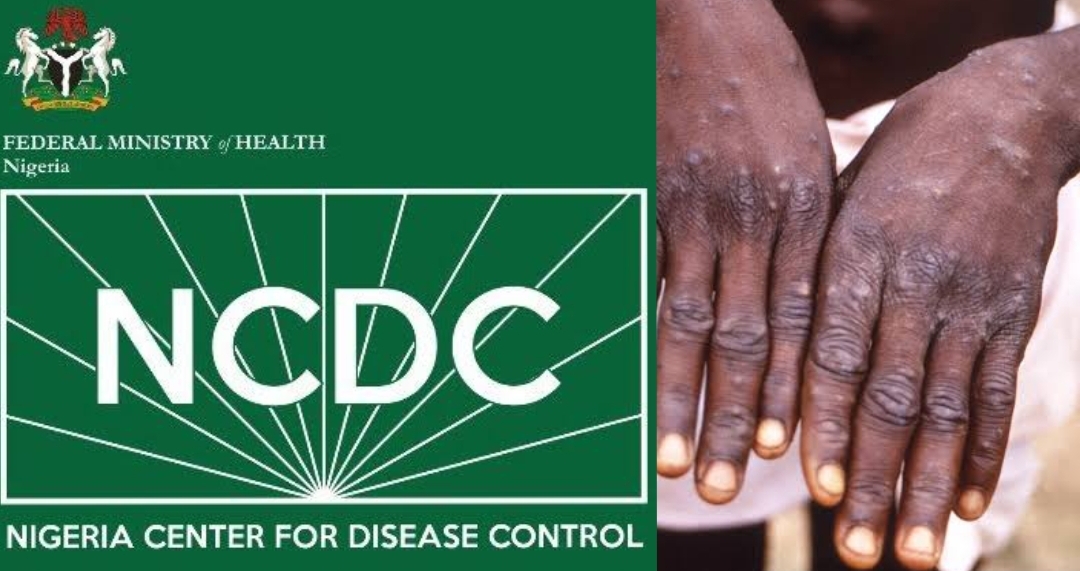By Iyemah David
The Nigeria Centre for Disease Control and Prevention (NCDC) has reassured Nigerians that most Mpox patients recovered fully after receiving timely and expert medical care.
The NCDC via its official website, on Thursday explained the importance of seeking medical attention at the earliest sign of symptoms to facilitate recovery and limit the spread of the disease.
Mpox, formerly known as Monkeypox, has been present in Nigeria since the 1970s, primarily appearing in rural areas with close interactions between humans and wildlife.
However, the current outbreak has raised concerns due to its more widespread and rapid transmission, particularly in urban centres.
“With proper and expert care, most Mpox patients recover. We urge everyone to visit a healthcare facility if they experience symptoms associated with the illness.”
The zoonotic disease, caused by the monkeypox virus, is primarily transmitted from animals to humans, although human-to-human transmission is also possible, especially in densely populated areas.
Mpox typically presents with symptoms such as sudden fever, headache, body aches, and general weakness.
The NCDC highlighted those individuals may also experience sore throat, swollen lymph glands, and a distinctive rash that begins on the face, palms, soles, and genitals.
The agency stressed that early detection and treatment were crucial to effective disease management.
“Our healthcare system is equipped to handle these cases, and with the public’s cooperation in seeking care, we can continue to control the spread of Mpox,” it added.
In response to the ongoing outbreak, the NCDC said its monitoring cases nationwide and had strengthened surveillance and response efforts in collaboration with state health authorities.
The agency also urged the public to avoid contact with infected individuals or animals that might harbour the virus and to maintain good hygiene practices to reduce the spread of the disease.
Nigeria received 10,000 doses of Mpox vaccines from the U.S. and has prioritised five states; Bayelsa, Edo, Cross River, Lagos, and Rivers, due to their high Mpox case burden.
Confirmed cases of the disease have been recorded across 19 states, including the Federal Capital Territory (FCT), since the beginning of the year.
Bayelsa currently leads with five confirmed cases, followed by Cross River, Enugu, and Akwa Ibom, with four cases each, and Benue with three cases.
For suspected cases, Ogun State tops the chart with 141 suspected cases, followed by Lagos with 99, Bayelsa with 94, Ekiti with 47, and Osun with 45 suspected cases recorded this year.
Although, the number of Mpox cases in Nigeria is relatively low compared to countries in the Central African region, where thousands of cases and hundreds of deaths have been reported, experts warn that the risk of Mpox remains significant in the country.




